Event Virtual
High-Level Briefing on the 5th Session of the United Nations Environment Assembly | GENeva UNEA Briefing
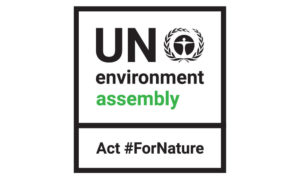
This briefing provided an update on the presidency priorities for the fifth session of the UN Environment Assembly, which first part is scheduled to take place virtually on 22-23 February 2021.
About the UN Environment Assembly
The United Nations Environment Assembly is the world’s highest-level decision-making body on the environment. It addresses the critical environmental challenges facing the world today. Understanding these challenges and preserving and rehabilitating our environment is at the heart of the 2030 Agenda for Sustainable Development.
The Environment Assembly meets biennially to set priorities for global environmental policies and develop international environmental law. Through its resolutions and calls to action, the Assembly provides the leadership to catalyze intergovernmental action on the environment. Decision-making requires broad participation, which is why the Assembly provides an opportunity for all to help design solutions for our planet’s health.
About the Fifth Session of the UN Environment Assembly
The fifth session of the UN Environment Assembly (UNEA-5) will take place in two-parts, an online session in February 2021 and a resumed session in February 2022. It will mobilize, motivate and energize member States and stakeholders into sharing and implementing successful approaches and nature based solutions that contribute to the achievement of the 2030 Agenda and the Sustainable Development Goals, particularly the eradication of poverty and the promotion of sustainable patterns of consumption and production.
The theme “Strengthening Actions for Nature to Achieve the Sustainable Development Goals” calls for strengthened action to protect and restore nature and the nature-based solutions to achieve the sustainable development goals in its three complementary dimensions (social, economic and environmental).
UNEA-5 will also provide an opportunity for Member States and Stakeholders to take ambitious steps towards building back better and greener by ensuring that investments in economic recovery after the COVID-19 pandemic contribute to sustainable development.
About this Session
This online briefing provided an update on the UNEA-5 President’s priorities for the Assembly, envisioned to strengthening actions for nature to achieve the Sustainable Development Goals and building a resilient and inclusive post-pandemic world for people and planet.
Beside this high-level briefing, a number of events are hosted by various actors in International Geneva and beyond in the run-up to UNEA-5. More information is available in our update Towards UNEA-5.
Speakers
By intervention order
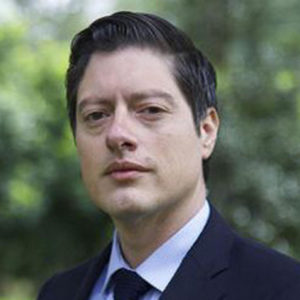
Jorge LAGUNA
Director, Governance Affairs Office, UN Environment Programme

H.E. Sveinung ROTEVATN
Minister of Environment and Climate of Norway, President of UN Environment Assembly
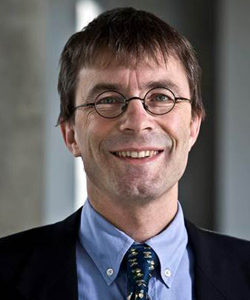
H.E. Amb. Franz PERREZ
Ambassador for the Environment, Switzerland

Patrizia HEIDEGGER
Director of Global Policies and Sustainability, European Environment Bureau (EEB)
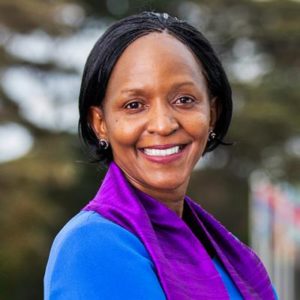
Joyce MSUYA
Deputy Executive Director, UN Environment Programme
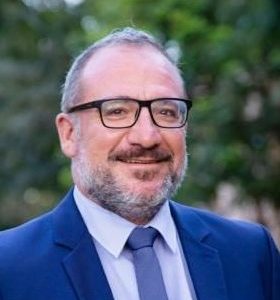
Bruno POZZI (moderator)
Director, Europe Office, UN Environment Programme
Summary
Welcome
Bruno POZZI, Europe Director, UN Environment Programme
Hosting an event ahead of the United Nations Environment Assembly (UNEA) is a tradition in International Geneva. While the environmental agenda is defined together with the member States at UNEA in Nairobi, the multilateral capital of Geneva is very much involved in implementing this agenda and making it cross-cutting for all the United Nations family. Therefore, the briefing today is important and, as we enter the last decade for the implementation of the Sustainable Development Goals (SDGs), we hold an ambitious UNEA.
Introduction to UNEA-5
Jorge LAGUNA, Director, Governance Affairs Office, UN Environment Programme
The Geneva Environment Network is an important platform to engage and discuss within the United Nations family and other stakeholders in Geneva on the future of the environmental agenda, and to support the United Nations to have a very strong environmental pillar in the context of sustainable development. In the past, we had several opportunities to engage despite the challenges of COVID to be able to pass on the messages about the work done in Nairobi to prepare for UNEA. This year, we are organizing the first-ever virtual UNEA. This has only possible been thanks to the commitment of member States to ensure that the pillar of the environment is not relegated within the ongoing discussions due to the pandemic.
The fifth UNEA (UNEA-5) will be held on 22-23 February 2021. It will be preceded by an Open-Ended Committee of Permanent Representatives, the preparatory body the UNEA, on 15-16 February 2021. The decision to hold a first segment of UNEA in 2021 emerged for the that we should not delay the adoption of UNEP’s medium-term strategy and programme of work for the upcoming years. Ministers also felt that the environment should also have a platform and a voice to discuss how COVID is impacting the environment and what role the environment can play in building a more sustainable recovery. These are the reasons why member States have agreed to hold this short UNEA, with the promise to reconvene in 2022 to commemorate UNEP’s 50th anniversary and hold a fully-fledged UNEA with several resolutions and outcomes.
Despite it being perceived as a small UNEA, it is by no mean a little event. Thanks to the energy and motivation of stakeholders and member states, there will be numerous supporting activities and platforms that will help us advocate for a very successful UNEA5. The full programme of activities will be shared in the days prior to UNEA. In the meantime, we can already look forward to the Global Major Groups and Stakeholders Forum, the first-ever Youth Environment Assembly Forum which will spread out over three days prior to the UNEA with more than 5’000 young people, and a United Nations Science Policy Business Forum for the Environment, gathering the science-policy interface, the environmental community and solutions-makers on the ground.
We are looking forward to welcome you in virtual Nairobi. We have sent all relevant communications to member States Representatives. All information, reports and updates can be found the UNEA website. The table is set for you to come and agree on an ambitious programme of work and chart the way forward from your Minister or organization’s perspective on what should be the response from the environment on building back better.
Member States Representatives who do not have a permanent mission in Nairobi, those who follow UNEP matters and are accredited, and even those who are not accredited but can get a letter of credentials from their governments, are invited to engage in UNEA5, as it will be virtual. Representatives from accredited non-governmental organizations are invited to contribute to the major groups and send a video message that we will make available in the leadership dialogues.
UNEA-5 and the Presidency Priorities
H.E. Sveinung ROTEVATN, Minister of Environment and Climate of Norway, President of UN Environment Assembly
In about three weeks, we will be holding an online segment of the fifth United Nations Environment Assembly (UNEA-5). This upcoming UNEA is a very special one, as it will be held digitally in the midst of a global pandemic. The pandemic has further aggravated the economic, social and environmental challenges that we need address in this decade. Never has global solidarity been more needed. Decision-makers on the environment have a role to play in getting back on track. We need to ensure that actions to stem climate change, biodiversity loss and pollution are further stepped up. The recovery must be green and sustainable.
UNEA is a forum that is particularly well suited to contribute to this and can play a role in combining climate, biodiversity and pollution actions, converting efforts in other forums. This is essential if we are to achieve the 2030 Agenda for sustainable development. UNEA is the best forum to allow us to build on our goal for a pollution-free planet. For example, addressing the growing problem of marine litter will have positive effects for the management of our marine resources. It also supports action for more sustainable consumption and production.
My objective for UNEA5 is to strengthen actions for nature to achieve the Sustainable Development Goals (SDGs). At the present, however, trying to stem the pandemic is the priority. Thus, we will be meeting in an online format in a few weeks. We will take the decisions needed for UNEP to continue its work, and then reconvene in 2022. In addition, it will be the opportunity to engage on building a resilient and inclusive post-pandemic world.
Another key issue is whether the online segment can agree on a message to the world. The fundamental question is whether we have enough common ground to agree on a concise message stating that addressing environmental crises must continue. UNEA should use its political voice to demonstrate our shared commitment to act. In addition, we need to encourage the climate and biodiversity Conferences of Parties (COPs) and other UN forums to continue the work to achieve the SDGs and leave no one behind.
Our response to the pandemic can be the starting point for a more sustainable future that will contribute to the eradication of poverty. We have learnt the hard way that our relationship with nature makes us vulnerable to infections from animals, like COVID-19. I look forward to discussing how we can ensure that UNEA is an inclusive and relevant forum, especially as there are several delegations in Geneva that are accredited to UNEA.
Ambition for UNEA
H.E. Amb. Franz PERREZ, Ambassador for the Environment, Switzerland
These are special times: the difficulties linked with the pandemic make it hard to meet, interact and progress. At the same time, it is more urgent than ever to move forward with an ambitious agenda. Multilaterals matter, even in virtual settings. It is important that all of us are willing to engage and to make full use of the virtual tools to progress.
We have accomplished much over the past 50 years. UNEP took the lead, setting the political agenda, collecting the scientific evidence and catalyzing action and support on the grounds. UNEA5 will be a crucial step to progress with good governance toward more ambition. We look forward to having good discussions and good outcomes at UNEA5.
The first part of UNEA5 (UNEA5-1) will have to adopt the political agenda for the next years. We need to send a strong signal showing that we are committed to protecting the global environment, even in times of the pandemic. There will be several ways for sending this message. First, UNEA should adopt the medium-term strategy (MTS), programme of work (Pow) and budget for UNEP. The MTS is more than a technical document: it outlines the next phase of our political commitment. Secondly, we hope to deliver a strong political message and we look forward to working together on this matter. Thirdly, UNEA5-1 will need to work on setting the agenda up to the second part of UNEA5 (UNEA5-2). This is critical to ensure that UNEA5-2 will be able to adopt robust decisions on substance, such as on the establishment of a scientific body to look at chemicals and waste issues, on emerging issues like climate outing technologies and measures, on important celebrations including Stockholm+50 and the 50th anniversary of UNEP.
We are also looking forward to good discussions in open-ended working groups and open-ended CPR, before and during UNEA5. We look forward to getting and receiving a strong signal for ambition at the next UNEA.
Civil Society Perspectives
Patrizia HEIDEGGER, Director of Global Policies and Sustainability, European Environment Bureau
While the pandemic has put the brakes on our lives, it also calls for courageous political decisions to attain an equitable and sustainable future. Major groups and stakeholders are strongly advocating for the Sustainable Development Goals (SDGs), the Paris Agreement, and other commitments that governments have to be the compass for the recovery. We hope that global environmental decision-making can be sped up, negative impacts on our planet and our health are not slowing down.
We support very strongly the President’s ambition to use UNEA’s political voice and for governments to lay out strong ambitions for actions for this Super Year for Nature and onward to UNEA5-2. We also support the President when he underscores the crucial importance of making clear progress in the other multilateral for a for the environment, such as the implementation of the Paris Agreement, the negotiations on the Post-2020 Biodiversity framework and the Beyond-2020 Chemicals and Waste framework.
We believe UNEA5 is the opportunity to recognize and cherish the true value of the services that intact ecosystems provide, and to acknowledge that nature has a value of its own, independent from our human needs. We believe UNEA5 would address how we can make sure that we hold accountable those who destroy and pollute our ecosystems and how we can advance with legally-binding measures to hold companies liable for environmental harm across the value chain. We also need to intensify the discussion on strong protection for environmental defenders who are threatened and even killed when calling out harmful practices.
We call on all of you to make sure that the UNEA process will result in a rethinking of our notion of development to one that is in harmony with nature. We hope UNEA is ready to take courageous decisions to end harmful practices and phase out polluting technologies, and to propose policies for a just transition to support those who are most impacted by environmental degradation and climate change.
To conclude, there are three points that we believe are particularly important for UNEA5. First, Civil society strongly supports the process following the UN General Assembly Resolution 73.333, known as the Global Pact for the Environment. We hope all of you can reengage in this urgent discussion on how we can close the gaps in international environmental law and how we improve its enforcement. We believe there is no reason to wait for 2022, and it is time now to plan a road map. We hope that UNEA5.2 will be the moment where we will have already kicked off the process to establish a global action plan to strengthen and enforce environmental law by 2025
Secondly, we hope that we can maintain the momentum towards UNEA5-2 to adopt a mandate to start negotiations for a legally binding instrument to tackle plastic pollution. The biggest hope that civil society has for UNEA5 is indeed that UNEA5 can deliver on plastic solution with very concrete outcomes.
Lastly, let me raise awareness of the need to support civil society in the UNEA process. Civil society has a lot to bring to the table, through our expertise and environmental policies, our connections with people on the grounds, and how we can increase the legitimacy of the processes and harness support from larger parts of societies. However, we need your support, both financial and to have a place at the table. We invite you to consider investment in civil society for us to have a meaningful role
UNEA-5: For People, for Nature and for the Planet
Joyce MSUYA, Deputy Executive Director, UN Environment Programme
As UNEP is part of the larger UN system, we look at Geneva as an important city and home for our regional office and a very active international community. Geneva is the seat of 181 permanent missions and many international organizations, most of whom have been great supporters of UNEP and have been advancing the work of UNEP to address critical environmental challenges. I want to take this opportunity to thank our partners and member States located in Geneva.
We have been using these briefings to share and exchange information on the deliberations of UNEA and UNEP related issues to member States, including those who do not have a presence in Nairobi. We are now just a couple of weeks away from the first-ever virtual UN Environment Assembly (UNEA). UNEA5-1 will approve a medium-term strategy (MTS), programme of work and budget for UNEP, which are at the core of UNEP’s operations. We are very much looking forward to engaging with all stakeholders, including member States, civil society, and others. 2021 is an important year for UNEP and the environment family: it is the time to regroup and reequip ourselves for the challenges ahead. Therefore, we look forward to having substantive discussions with member States and stakeholders on our MTS for 2022-2025.
In order for UNEP to sharpen its focus and deliver on what member States are expecting, the MTS outlines three priority areas which correspond to the three planetary crises we are facing: climate change, biodiversity loss and pollution. UNEP will tackle these crises by developing targeted responses and solutions, with a strong focus on results. UNEP will draw on its core competencies: science-policy interface and environmental governance, as cross-cutting foundations to help delivery in the three priority areas.
UNEP will also continue its work on finance and economic transformations, as science has told us that systemic transformations are needed to address environmental challenges. The UNEP Finance Initiative (UNEP FI) and other projects will continue their work and reach a wider audience for partners. UNEP will also deploy digital technologies to systematically integrate environmental data, knowledge and insights in its work. This is an exciting new initiative on digital transformation, and we are looking forward to embedding this aspect into our programme of work. More importantly, UNEP is looking at using projects to catalyze transformational results. We adopt this much sharper focus on results because we recognize that member States are investing in UNEP and we have an obligation to deliver results.
As we seek to re-balance the relationship between people and planet, the year 2021 provides us with a unique opportunity to continue and kick-start the Decade for Ecosystem Restoration, which will be launched during World Environment Day in June 2021. As part of reflections on the COVID-19 pandemic, we realized that we need to pay far greater attention to environmental health if we are to secure human health. UNEP will deepen its work with other UN families on risk analysis and antimicrobial resistance, and with member States on institutional structures.
A big piece of the people-nature puzzle will also depend on our success in in fixing the food system. UNEP is contributing to the UN Food System Summit convened by UN Secretary General, because a climate safe world is the foundation of food security. Likewise, in the Ocean Decade for Science, UNEP is working closely with UNESCO and other partners to jointly develop pathways for sustainable blue economies and technologies, solutions to tackle marine litter and plastic pollution, as well as land-based pollution. In this context, UNEP facilitated the Ad-Hoc Open-Ended Expert Group on marine litter. I look forward to place UNEP at the service of member States in the next steps of these processes.
There are some highlights of UNEP’s engagements, which are by no mean exhaustive. UNEP calls for your continued guidance and help to secure the well-being of people, economies, societies, and the planet.
Q&A
H.E Amb. Silvia Alfaro, Permanent mission of Peru in Geneva
Thank you for this briefing, which is a great opportunity for member States who do not have an office in Nairobi to be engaged in the processes for UNEA5 from Geneva. Peru is fully committed to UNEP’s work and does its best to actively participate in its debates. The Minister of Environment of Peru will participate at the leadership dialogue at UNEA5 and looks forward to a rich exchange on how the environmental dimension of sustainable development can contribute to build back better.
Peru expresses its full support to the President of UNEA5 and the will to adopt a political message as an outcome of UNEA5-1. We believe it is important for UNEA to have a political message to maintain its visibility and relevance as the world highest level decision-making body on the environment. We are pleased to see the growing consensus on a political message. We also assure you of Peru’s full support for a successful UNEA5-2 in February 2022. We will continue to engage constructively to achieve results in important areas, such as marine litter and plastic pollution, and waste and chemical management.
Amb. Hans Brattskar, Ministry of Climate and Environment, Norway
I am very grateful for the strong support we have received from all of you. I am also glad to hear the message from Peru and the news that the Minister will participate in the high-level segment. It is very good to hear from a country that does not have a mission in Nairobi, but certainly has a vital role to play in the work leading up to UNEA5.
Sophie Hunter, UNCTAD: I am wondering why there isn’t a more intensive push in UN COVID19 related projects to incorporate the sustainability/ environment dimension.
Joyce Msuya: Following the emergence of the pandemic, UNEP has worked with partners to understand the science behind zoonotic diseases. In June 2020, we published a report grounded in science on the links between environmental and human health. More recently, we joined hands with WHO, FAO, and OIE for the “One health” initiative. Our common goal is to understand the links between zoonoses and the environment, and to reflect on the lessons learnt from COVID-19 on how to prevent future outbreaks.
Philippe: The scientific data is available indicating that economic growth has come at a devastating impact to the environment, but action has been slow. What more is needed to enforce stricter environmental measures not only with the private sector but also within governmental subsidies ?
Franz Perrez: Environmental governance is critical, as we need system that allows countries to identify the challenges we are facing, to develop policies to address them, and to stimulate implementation. These are the foundations of UNEP, which provides a scientific basis for decisions, a forum to take political decisions, and support to catalyze actions on the ground. UNEP is at the heart of the governance system we need in order to advance. If we’re not advancing as much as we would like, it is not UNEP as such to blame, but us, because we are not doing enough for member States to take ambitious positions.
Patrizia Heidegger: Civil society believes that there is a lot of scope to improve international environment governance, and the gaps have been identified. We believe the UNEA process should be the forum where these discussions are continued. We also believe it is time to develop a roadmap of how to address the gaps. Regarding economic growth, environmental governance and law, we also believe that UNEA could be the place where this discussion could be held, including all relevant stakeholders. There is an increasing number of critical voices from science and institutions on the promise of green and sustainable growth. .
Moustapha Kamal Gueye, ILO: In the virtual format, will the UN and other intergovernmental organizations be able to provide substantive statements and inputs during the UNEA session ?
Jorge Laguna: Despite UNEA5-1 being a shortened edition, we have created the opportunity for all UN organizations to provide a video message as part of the leadership dialogue. As previously mentioned, the topic of this dialogue will be the contribution of the environmental dimension to building a resilient post-COVID world. We are provided a number guiding questions, and organizations are invited to submit a video statement, which will become part of the UNEA proceedings. We are happy to follow up with any organization that would like to get involved.
Amb. Hans Brattskar: The leadership dialogue will indeed be a very important moment, and its theme is spot on with the current context. I am very much looking forward to the interesting and engaging discussion coming up in a few weeks on this important and timely issue.
Closing
Video
The event was live on Facebook and on this webpage.
Documents
Links
- UN Environment Assembly
- Towards UNEA-5 | Geneva Environment Network
- UNEA5 President Message | UNEP | 18 January 2021
- Restart 2021: Rising to the challenges of the environmental agenda | Inger Andersen @ 153rd meeting of the Committee of Permanent Representatives | 26 January 2021
- Leaders prepare to deliver ‘strong political message’ at UN Environment Assembly | Geneva Solutions | 4 February 2021
- World leaders set for pivotal environmental assembly | UNEP | 1 February 2021
- Virtual Events in Support to the 5th UN Environment Assembly (9-23 February 2021)
